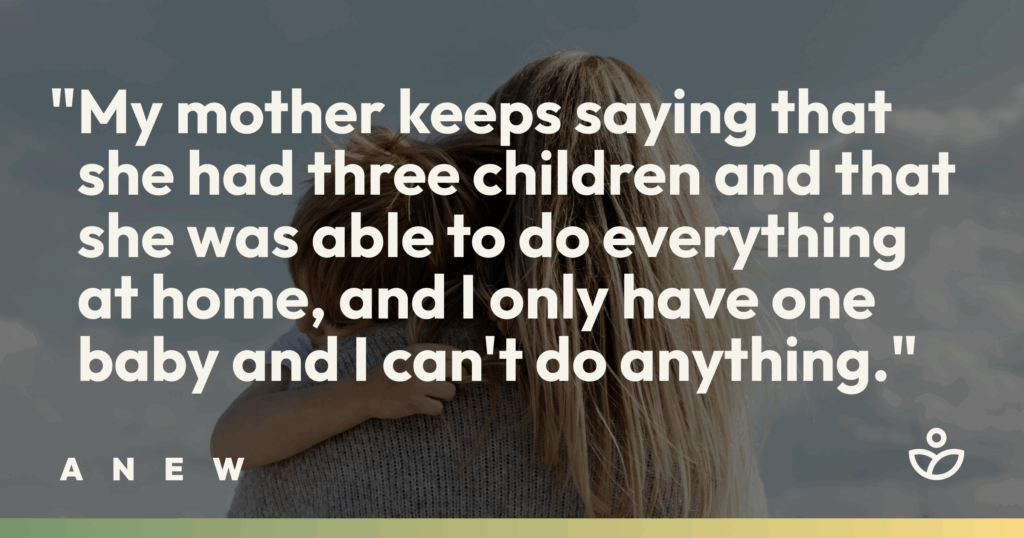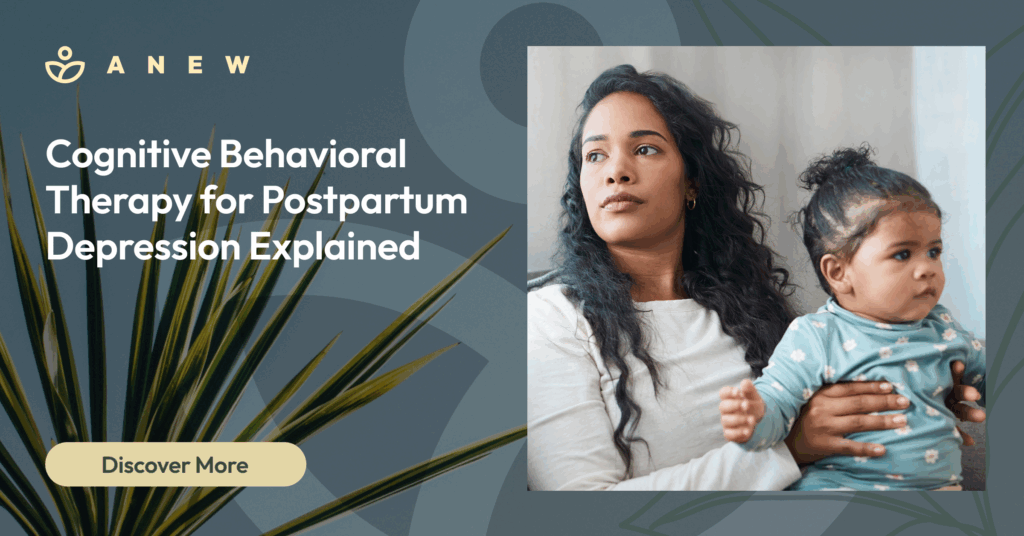CBT for postpartum depression is one of the most effective, evidence-based treatments available for new mothers struggling with depression after childbirth. Here’s what you need to know:
Quick CBT for Postpartum Depression Facts:
- Effectiveness: Medium to large effect size in reducing depression symptoms
- Duration: Typically 12-16 sessions over 3-4 months
- Success Rate: About one-third of mothers overcome PPD using CBT
- Key Benefits: Reduces symptoms, prevents relapse, improves anxiety and bonding
- Format Options: Individual, group, or online therapy available
- Professional Delivery: Most effective when delivered by trained mental health professionals
You’re facing something that affects up to one in five mothers. Postpartum depression is incredibly common, yet it often feels isolating and overwhelming. The exhaustion, guilt, and disconnection you might be experiencing aren’t character flaws or signs of weakness; they’re symptoms of a real medical condition that responds well to treatment.
As one mother shared in a recent research study:

These harmful thoughts and beliefs (the comparison, the self-criticism, the feeling of not measuring up) are exactly what CBT helps you identify and change.
How CBT for Postpartum Depression Can Help You Reclaim Your Joy
Understanding Postpartum Depression vs. the “Baby Blues”
After your baby arrives, it’s hard to know what’s normal. While the “baby blues” affect up to 80% of new mothers with mild mood swings and tearfulness that resolve within two weeks, postpartum depression (PPD) is a deeper, more persistent condition. PPD can occur anytime within the first year after childbirth, and its impact on daily life is significant. You might experience overwhelming sadness that doesn’t lift, intense guilt about your bond with the baby, or surprising irritability. Some mothers feel numb or empty, while others struggle with appetite or sleep changes beyond typical newborn disruptions. These are not signs of failure; they are symptoms of a treatable medical condition. If your symptoms last more than two weeks or severely impact your ability to care for yourself or your baby, it’s time to seek help.
The Core Principles of Cognitive Behavioral Therapy

CBT for postpartum depression works on a simple yet powerful principle: your thoughts, feelings, and behaviors are all connected. This evidence-based approach, typically involving 12-16 sessions, is practical and present-focused. It helps you understand and change unhelpful patterns. For example, a thought like “I’m a terrible mother because the baby won’t stop crying” can trigger feelings of guilt and overwhelm. These feelings might lead you to withdraw from your partner, which reinforces the original thought, creating a negative cycle. The cognitive model at the heart of CBT helps you become aware of these automatic negative thoughts. You learn to pause, identify thoughts like “Everyone else makes this look so easy,” and evaluate their realism. By challenging these harsh internal judgments, you begin to see they often aren’t true, which is the first step toward feeling better.
Practical CBT Techniques to Manage PPD Symptoms
The beauty of CBT for postpartum depression lies in its practical, hands-on tools. Cognitive restructuring is like being a detective with your own thoughts. You learn to catch and challenge unhelpful assumptions, like “I should be able to handle this without help,” by questioning where the rule came from and if you’d apply it to a friend. Behavioral activation counteracts depression’s inertia by helping you schedule small, meaningful activities that bring pleasure or a sense of accomplishment, like a short walk or a call to a friend. The key is setting achievable goals. Relaxation techniques and mindfulness, such as deep breathing, provide immediate tools for managing overwhelming anxiety. Finally, CBT reinforces that improving your self-care (nutrition, exercise, sleep) is essential, not selfish, and helps you learn to build social support by accepting help as a sign of strength.
The Evidence: Why CBT for Postpartum Depression is a Top-Tier Treatment
The research supporting CBT for postpartum depression is compelling, positioning it as a first-line treatment for mild to moderate PPD. Decades of studies consistently show that CBT works. For instance, one notable study showed mothers’ depression scores on the Edinburgh Postnatal Depression Scale (EPDS) dropped from an average of 15.77 to 11.22 after treatment. Women receiving CBT are also three times more likely to experience clinically significant improvement in both depression and anxiety symptoms compared to standard care alone. The reduced relapse rates are equally important; CBT equips you with lasting skills, not just temporary relief. A comprehensive systematic review and meta-analysis confirms these findings, showing a medium effect size for CBT-based interventions in reducing depression symptoms.
When CBT Isn’t Enough: Fast-Acting Alternatives for Severe PPD
While CBT can be an effective therapy for postpartum depression, some mothers need additional support to break through severe or treatment-resistant symptoms. When time is of the essence and every day feels like a mountain, waiting weeks for relief isn’t always practical.
That’s why Anew Therapy offers advanced, rapid-acting options that can complement therapy or provide a bridge when talk therapy alone doesn’t fully meet your needs.
Spravato (Esketamine Nasal Spray)
For mothers experiencing intense, treatment-resistant depression, Spravato offers a new pathway to relief. Unlike SSRIs that work on serotonin, Spravato targets the brain’s glutamate system, helping to rewire mood pathways more quickly. It’s administered as a simple nasal spray under clinical supervision, often covered by insurance, and many patients feel a shift in as little as a few sessions.
Transcranial Magnetic Stimulation (TMS)
TMS is a non-medication, non-invasive therapy that pairs well with CBT. It uses gentle magnetic pulses to activate the parts of your brain that regulate mood, essentially reinforcing the same neural pathways you’re working to reframe in therapy. Sessions are brief, side-effect-free, and require no downtime. Many patients begin noticing improvements in 2–4 weeks.
IM Ketamine Therapy
IM Ketamine therapy provides the fastest relief of all our options, often working within hours to days. This treatment involves intramuscular injections of ketamine and can be particularly helpful for mothers experiencing severe symptoms or those who haven’t found success with other treatments. It’s especially valuable for treatment-resistant cases where traditional approaches haven’t provided adequate relief. However, due to limited data on milk transfer, it may not be recommended for mothers who are actively breastfeeding.
These therapies don’t replace CBT – they enhance it. At Anew Therapy, we believe in meeting you where you are, whether you’re just beginning therapy or exploring more intensive solutions. If your symptoms feel too heavy to carry alone, you don’t have to. Relief can come faster than you think.
Taking the First Step Towards Healing

The journey through postpartum depression can feel overwhelming, but what matters most is knowing that you are not alone, and healing is absolutely possible. Seeking help is a sign of strength, and it’s one of the most caring things you can do for both yourself and your baby.
CBT for postpartum depression has proven itself as a powerful, evidence-based tool to help you reclaim your joy and strengthen your bond with your baby. It equips you with practical, lifelong skills to manage your thoughts and feelings, paving the way for recovery.
At Anew Therapy Utah, we understand that recovery isn’t one-size-fits-all. While we specialize in advanced treatments like ketamine therapy for rapid relief from depression and anxiety, we believe in a holistic approach to mental wellness. Our customized, patient-centric treatment plans are designed around your unique needs.
You deserve to feel joy in motherhood and to feel like yourself again. Don’t wait to take that first step. Our team of licensed therapists is here to support you with compassion and expertise, every step of the way.
Give us a call at (801) 980-2690 or schedule a free consultation online today.

